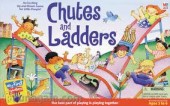Emotional Survival Tools: Fortitude, Gratitude, Faith
Last year, NAMI interviewed me for a story about my family's experience with mental illness. In it, Jessica Edwards asked me about emotional survival, along with other lessons in our story so far. This is an excerpt from the interview, reprinted here because people have told me they found comfort in its advice.
A Family's Journey with Schizophrenia
NAMI: You discuss some really painful and difficult times in your story. What was the key thing that got you through those struggles?
Kaye: These two mantras helped me a tremendous amount. They remind me to stay grateful in the moment, and stay in a place of acceptance and hope:
- It is what it is, now what? - and
- Whatever happens, we’ll handle it somehow.
We all know recovery is like a game of Chutes and Ladders. It helped me to remember that you can’t jump straight to acceptance, but eventually you must work from that place. Whenever there is a crisis or setback, I allow myself my own pain. I allowed myself to cry when I needed to cry, and allowed myself the process. And I allowed my family their process. Allow yourself the grief and pain.
that you can’t jump straight to acceptance, but eventually you must work from that place. Whenever there is a crisis or setback, I allow myself my own pain. I allowed myself to cry when I needed to cry, and allowed myself the process. And I allowed my family their process. Allow yourself the grief and pain.
I also read When Bad Things Happen to Good People. Somewhere, deep inside, I think maybe there is a reason for this but I sure don’t know what it is. So I don’t look for the meaning.
But I do believe that bad stuff happens to good people, and I don’t know why. No, it’s not fair, and it’s not my job to figure out why. But I have a journey and so does my son. I know there is some plan, somewhere, that I have no access to, and Ben’s life has a journey and I have to allow him that journey. However, he was thrown together with this family in this life so that we can be some support to him along his path, and vice versa.
[caption id="attachment_1498" align="alignleft" width="170" caption="support if you reach for it"] [/caption]
[/caption]
(note from Randye: In my book, Ben Behind His Voices, my son's beautiful poetry shows his point of view in various stages of onset, psychosis and stabilization. In one poem, he thanks me for my support and refers to me as "the railing in my stairwell as I help myself up a mountain". This line is referenced in the next section.)
Railing in the Stairwell to Schizophrenia Recovery
A railing doesn’t push, doesn’t pull, it’s just there when you need it.
There is a huge difference between hope, dreams and expectations.
Dreams are safe because you haven’t taken any steps to prove them wrong. Hope is a little more concrete; you can take some action steps towards it, and you have seen the possibilities of hope. But you don’t expect specific dreams, or you might feel your life is falling short somehow. Just dream, hope, and know you’ll be okay no matter what. Expectation can lead to disappointment if you pin your happiness on whether or not certain things happen - but we can dream, we can hope, and in working towards those hopes we find our happiness, even if things come out not exactly as planned. Hopes must have some flexibility!
We take steps to hope for the best, but also know we have the ability to handle whatever happens. I don’t dwell on the negative—I aim toward appreciation of the positive. I like to be in the present and be grateful to be here.
Why did you decide to write about mental illness in the family?
Kaye: Part of the effect I want the book to have, is I want to put one human face behind the symptoms of mental illness, in the hope that professionals realize, that every person they come across is a person with a past, with strengths, and is a human being with an illness—and to treat the whole person.
We must continue to advocate for early detection, better research, and fair media coverage for people living with mental illness. Services cannot be cut; we must fund them, make them available, improve them—so that people with mental illness can reclaim their futures, not be lost in a system that too often puts them out on the streets, or in jail.
I advocate for increased research and treatment, for strength-based support, for stomping out stigma, for insurance parity, for more railings in the stairwell. I advocate for my son Ben, and for others like him. I advocate for possibility and support, not limitation and hopelessness. See the worth!
APA Reference
Kaye, R.
(2013, June 11). Emotional Survival Tools: Fortitude, Gratitude, Faith, HealthyPlace. Retrieved
on 2025, November 26 from https://www.healthyplace.com/blogs/mentalillnessinthefamily/2013/06/emotional-survival-tools-fortitude-gratitude-faith